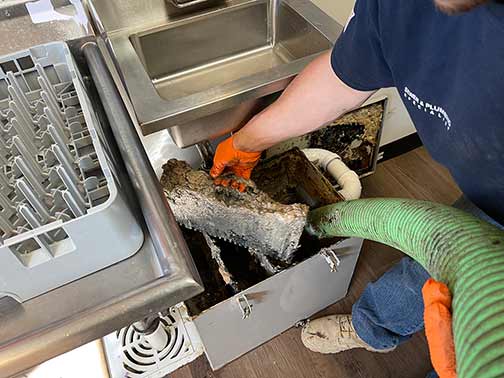
If you own a commercial kitchen, restaurant, or food service operation, chances are high that there will be a grease trap inside your drainage systems. Grease traps are essential for buildings used as restaurants, cafés, bars, hotels, bakeries, or schools.
Grease traps help prevent the damage that FOGs (fats, oils, and grease) would do if allowed to indiscriminately enter the municipal sewers and natural waterways. Grease traps are receptacles that catch the grease inside wastewater before the wastewater enters the drainage systems.
But while grease traps protect public sewer systems and the natural environment, grease traps also need to be protected. With proper maintenance, says Service Star Realty, your grease trap will become efficient and pose serious problems for your business and the people who use the premises.
Grease trap cleaning and maintenance is important for the following reasons:
- It prevents terrible odors that can emanate from a grease trap and foul up the air inside the building. Foul odors affect the health of your employees/customers and can even ruin your business.
- Prevention of damage to drainage systems as a result of the accumulation of solidified FOG (fats, oils, and greases) inside the drainpipes.
- Prevention of costly grease trap or drainpipe repairs; the inevitable consequence is if you fail to maintain the grease trap in a timely fashion.
- Avoid hefty fines from the authorities due to toxic spillage from a malfunctioning grease trap that pollutes natural water systems and harms local wildlife.
How to maintain your grease trap, the dos, and the don’ts
Don’t: Use enzymes or solvents to clean your grease trap
Solvents and enzymes promise a quick way to clean your grease trap. But these shortcuts can cause you major problems. Grease traps already contain microorganisms and natural enzymes that break down the fats, oils, and grease inside them.
You don’t need to add enzymes artificially, as they can disrupt the natural process. Cleaning solvents or agents like bleach, drain cleaners, or chemicals will destroy the active enzymes inside the grease trap.
Don’t: Pour boiling water into the grease trap
Pouring boiling water into a grease trap or a trap-connected sink will defeat the purpose of having a grease trap. This is because when wastewater enters a grease trap, it slows down to let the less dense FOG in the water rise to the surface. However, the FOG melts and runs quicker when you pour boiling water into the grease trap. This makes it easier for fats, oils, and grease to escape the grease trap.
Don’t: Neglect to clean the grease trap
While grease traps break down the fats, oils, and grease that enter them, this process is not quick enough to keep the trap free of FOGs. Your grease trap will eventually fill up and require cleaning. How you clean the grease trap and how often you do it depends on the size and location of the trap. The regulations in your area also play a role in how often you clean the grease trap.
Do: Install your grease trap properly
The size of the grease trap and how it is installed matter. Grease traps come in various sizes; the right size for your business depends on how much mess is generated in your kitchen. An undersized trap will result in overflows and backups.
To size the grease trap for a business, check the number of sink outlets and other equipment (glasswasher and dishwasher) in the kitchen, as well as the rate at which water flows from the kitchen (measured in gallons per minute-GPM). Proper installation of the grease trap will prevent slow draining. Also, if there is little to no grease accumulating inside the trap, the grease trap must be installed appropriately.
Do: Dispose of food solids properly
Train your staff to always dispose of waste and food solids in the trash; they should not let them wash into the sink. Do not use the grease trap as a waste disposal unit. Install strainers in the sinks to facilitate this process. Allowing food solids to wash into your grease trap will fill up faster and become clogged with waste.
Do: Hire professionals
Hiring professionals to clean your grease trap is the best way to ensure the system’s efficiency. Experts protect your business by eliminating any risk of heavy fines by the authorities. Hiring professionals for this job will save you money; you won’t have to acquire expensive equipment that you only need occasionally. Professionals will also prolong the life of your grease trap by cleaning it thoroughly.
Do: Know the law
Laws guiding the use of grease traps vary by location. These laws cover the right size of a grease trap for specific premises, how often it should be cleaned, how it should be cleaned, and how the waste collected from the grease trap should be disposed of. To avoid penalties or business closure, know what the law says about how to use your grease trap.